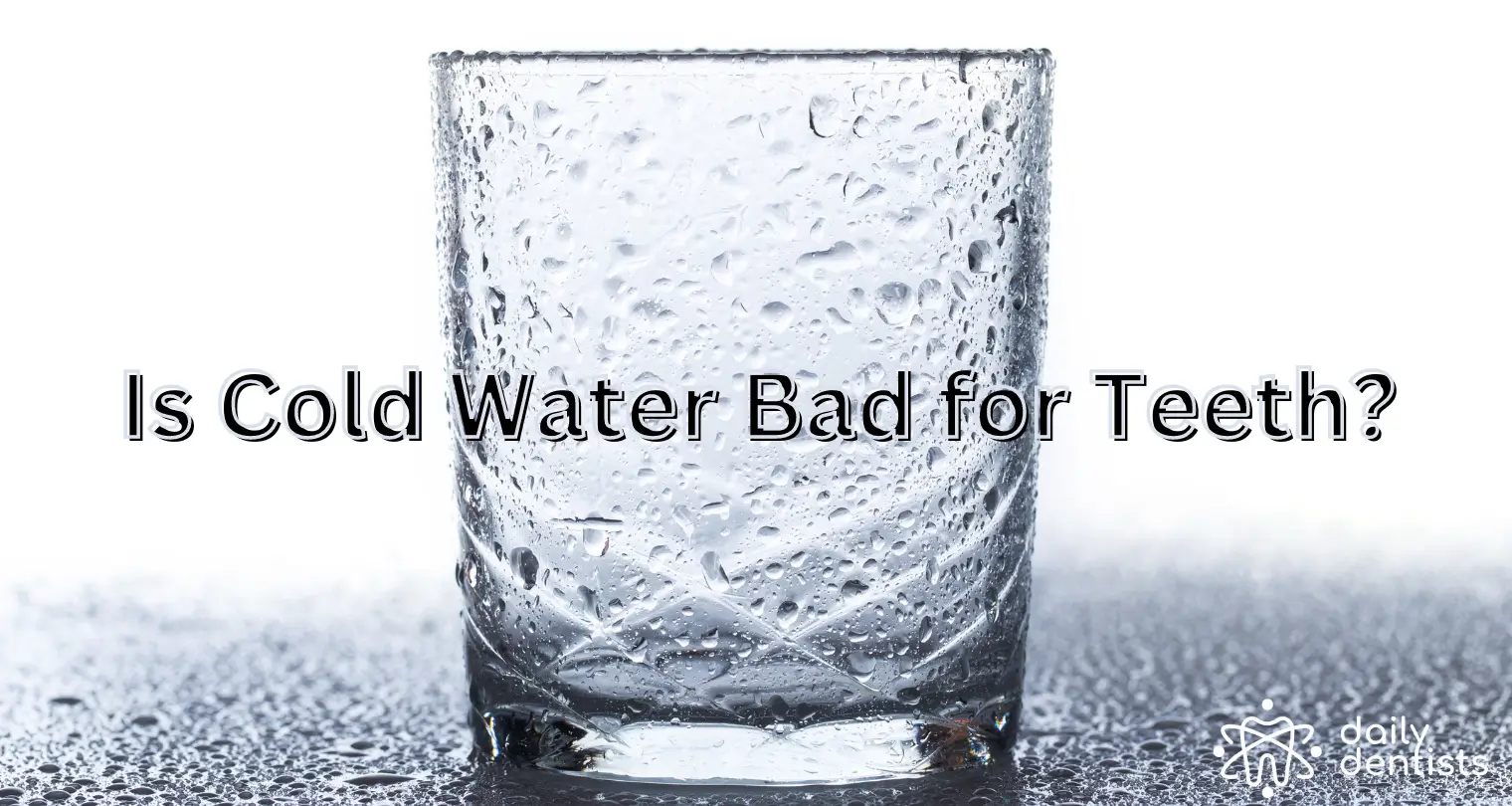Cold water feels refreshing, especially on a hot day. But is it safe for your teeth? While cold water is generally safe for your teeth, there are certain factors to consider to maintain oral health. Let’s explore the benefits and risks of drinking cold water and what you can do to protect your teeth.
Benefits of Cold Water for Teeth
Improved Hydration
Staying hydrated is essential for your overall health, including your oral health. Drinking cold water helps keep you hydrated, which benefits your teeth and gums. When your mouth is dry, harmful bacteria can build up, leading to cavities and gum disease. Cold water encourages more frequent drinking, helping to maintain a healthy balance of saliva that fights bacteria and keeps your teeth strong.
Reduced Acidity
Cold water can help reduce the acidity in your mouth. Acidic beverages and foods, such as sodas and citrus fruits, gradually wear down the protective enamel on your teeth. When you drink cold water, it dilutes the acid in your mouth, which helps to protect your enamel from damage. Drinking water after meals or sugary snacks helps wash away leftover food particles and acid, lowering your risk of tooth erosion.
Temperature Sensitivity
Many people believe that cold water worsens tooth sensitivity. However, for most people, cold water doesn’t cause long-term sensitivity issues. Sensitivity often occurs when the protective enamel wears down, exposing the softer dentin layer. While cold water may temporarily trigger sensitivity in already compromised teeth, it doesn’t cause sensitivity on its own.
Potential Risks of Cold Water
Tooth Enamel Erosion
While water itself isn’t acidic, drinking cold water with acidic beverages could still harm your enamel. Excessive consumption of drinks like soda or fruit juices—even when served cold—can contribute to enamel erosion. The combination of acidity and cold temperatures may accelerate the weakening of enamel. This makes it crucial to balance your intake of cold water with non-acidic options.
Temperature Sensitivity
Abrupt shifts in temperature can cause teeth to become sensitive, especially if you have thinner enamel or cavities already present. Drinking cold water after sipping a hot beverage, like coffee, can heighten this effect. This temperature shift causes the tooth’s inner layers to contract and expand, leading to discomfort. If you experience ongoing sensitivity, talk to your dentist to rule out underlying dental problems.
Jaw Pain
For some individuals, the cold temperature can lead to jaw pain. People who clench or grind their teeth may feel added discomfort when exposed to cold water. Cold drinks can trigger muscle tension in the jaw, resulting in pain or soreness. If jaw pain persists, it’s essential to address any habits like grinding that may be contributing to the problem.
Tips for Healthy Teeth and Cold Water Consumption
To ensure cold water remains a healthy choice for your teeth, follow these tips:
- Limit Acidic Beverages: Try to reduce your intake of acidic drinks like soda, fruit juice, and energy drinks. These beverages can wear down your enamel over time.
- Rinse Mouth After Drinking: After consuming acidic drinks, rinse your mouth with cold water. This helps wash away the acid, lowering your risk of enamel damage.
- Use a Straw: When drinking acidic or sugary beverages, use a straw. This minimizes the contact between the drink and your teeth, reducing the risk of enamel erosion.
- Consider a Fluoride Toothpaste: Fluoride strengthens enamel and helps protect against decay. Use a fluoride toothpaste as part of your daily oral care routine.
- Regular Dental Check-Ups: Visit your dentist regularly for cleanings and check-ups. Early detection of dental issues can prevent them from worsening.
Conclusion
Cold water can benefit your oral health by keeping you hydrated and helping to neutralize acidity in your mouth. However, it’s essential to be mindful of the risks, especially when consuming acidic beverages or if you have sensitive teeth. While cold water itself is safe, balancing your oral care routine and staying proactive with dental visits will ensure your teeth remain healthy and strong.
Remember, proper hydration, avoiding acidic drinks, and maintaining regular dental check-ups are key to a bright, healthy smile.
Is Too cold water bad for your teeth?
Drinking very cold water isn’t inherently bad for your teeth, but it can cause discomfort if you have sensitive teeth, weakened enamel, or cavities. Sudden exposure to extreme cold can trigger sensitivity by causing the teeth to contract. Over time, if your enamel is already compromised, this sensitivity can become more pronounced. However, cold water itself doesn’t damage teeth unless it’s combined with other factors like acidic or sugary drinks.
If you experience persistent pain or discomfort from cold water, it’s a good idea to consult your dentist to identify any underlying issues.
Is it OK to brush your teeth with cold water?
Yes, it’s perfectly fine to brush your teeth with cold water. The temperature of the water doesn’t affect the effectiveness of brushing. What matters most is using proper brushing techniques, a fluoride toothpaste, and brushing for two minutes twice a day.
However, if you have sensitive teeth, cold water might cause temporary discomfort. In that case, brushing with lukewarm water may feel more comfortable. The key is to focus on maintaining good oral hygiene, regardless of the water temperature.
Is cold water good for gums?
Cold water can be soothing for your gums, especially if they feel sore or inflamed. Drinking cold water helps reduce inflammation and can provide temporary relief from gum discomfort. Additionally, staying hydrated with cold water supports overall oral health, including gum health, by maintaining a healthy balance of saliva, which helps protect against bacteria.
However, if you have gum issues, it’s important to address the underlying cause with proper oral care and regular dental visits. Cold water alone won’t resolve gum problems, but it can be a part of your routine to keep your mouth comfortable and hydrated.

